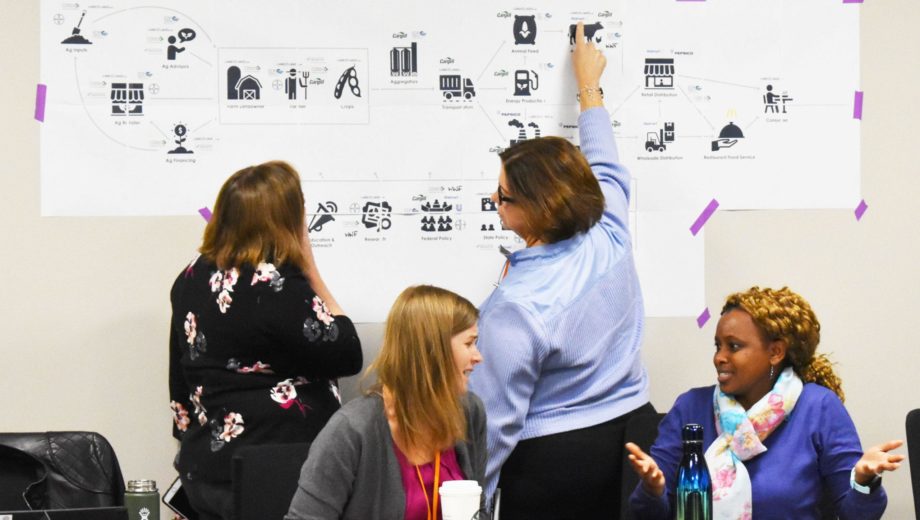
When we know enough to act
As May 2020 comes to a close, there is much we don’t know about COVID-19’s impacts on our agricultural and food systems. Some of the questions we continue to grapple with include: What aspects of the system have been permanently altered? What will emerge in its place? How will this be determined, and by whom? Because we recognize that the process of charting a better path forward for our food system will result from evolving discussion between many different perspectives, we’re grateful for the wisdom of so many leaders, including examples found here, here, and here, whose explorations of necessity and possibility bring us closer to a better future.
But amid the questions, there is plenty that we do know by observing the cracks in the system that COVID-19 has revealed.
- The system has not met the basic needs of people across the entire supply chain, beginning from producers and extending all the way to consumers.
- The system has evolved to be efficient at the expense of its resilience.
- An accurate assessment of the system’s condition must look beyond traditional indicators.
- If we want this system to remain viable, we cannot settle for a return to ‘business as usual.’
Acknowledging these realities as individuals, communities, and leaders puts us in a delicate position—we can clearly identify what has ceased to work and share an understanding of what should take its place, yet we lack agreement on the most effective steps for each stakeholder to take. However, this uncertain space is where both risk and payoff live—the complex work of system transition relies on asking the right questions, identifying missing perspectives, being willing to make mistakes in service of building knowledge, and maintaining an appetite for bold action.
Managing the tension between information gathering and action is a familiar practice for Midwest Row Crop Collaborative (MRCC) members. Before COVID-19 focused global attention to our food system, our members already recognized the growing threats of depleted soil health and water quality and availability. As we stare down an estimated loss of 90% of the world’s topsoil by 2050, increasing agricultural irrigation demands on the diminishing Ogallala Aquifer, and a growing dead zone in the Gulf of Mexico, it’s clear that our need for transformation within the agricultural system has never been so dire. And although deeply necessary, we recognize that the idea of transformation can feel threatening, confusing, or exciting (or all of those at once), depending on where one sits. What gives our members hope is the knowledge that, in mounting a collective response to COVID-19, we have an opportunity to transform our food system into one that is just as responsive to increasing natural resource demands and climate change as it is to the system-wide shock of a global pandemic.
The Collaborative’s approach to building resilience leans into the roles for which the private and nonprofit sectors are best suited, recognizing that people are both the backbone and the connective tissue of our food system. Our network, with its varying perspectives and relationships, enables us to identify systemic barriers to the adoption of good farming practices, conceive of opportunities to address these barriers, test and learn from pilot projects, and scale adoption through our shared learning. In spite of the headway we’ve made toward a more resilient food system, we don’t have all the answers. But in a world shaken by COVID-19, we can reaffirm our commitment to asking questions, seeking missing perspectives and opening ourselves to partnership, and testing the strategies and practices we employ until we’re confident they can scale effectively, all in the pursuit of transformative change.
The stress of a global pandemic hasn’t yet fundamentally changed our food system’s structure—it simply stripped away much of what concealed its vulnerabilities. And although the nature of our agricultural crises is constantly evolving, we are certain that we have both the ability and an imperative to act quickly and transparently in building a stronger, more resilient food system.